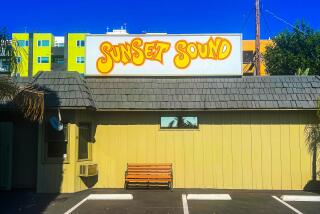Making beautiful music together
Rising from a familiar morass of 9th Ward wreckage is a cluster of modest, brightly painted new homes. More are being built every day by a seemingly endless workforce of out-of-town volunteers.
The music today is mostly saws and hammers. But when this project is completed, the majority of the subsidized, low-income homes will be occupied by New Orleans musicians.
Musicians’ Village is an unprecedented effort to sustain that diffuse and informal organism that is the New Orleans music scene. It is Habitat for Humanity’s signature post-Katrina project here, one dreamed up by musicians Harry Connick Jr. and Branford Marsalis after the flood.
Each of the 72 single-family homes is partly funded with $75,000 from an individual sponsor, such as a company or church group. If local musicians can show they make at least $18,600 a year and have decent credit -- difficult hurdles for many working musicians here -- they qualify for homeownership. Habitat then sets them up with an interest free, 30-year loan with a $550 monthly payment. They must also put in 350 hours of “sweat equity,” typically by helping build their own house.
The creation of a neighborhood of musicians is a new twist for a city in which geographic boundaries were also musical ones. Charles Chamberlain, a historian with the Louisiana State Museum, notes that in the early days of jazz, musicians from uptown neighborhoods were considered more informal and self-taught, while downtown musicians, who often had roots in the middle-class Creole gentry, were better trained and more technically proficient. In later years, Mardi Gras Indian troupes and gangster rappers identified with specific streets or housing projects.
Musicians who have moved into the village are from all parts of the city, and they represent a diversity of ages and styles: Mardi Gras Indians and salsa players, seasoned R&B; session men and young guns who play a little of everything.
Blues guitarist Adam Crochet, 28, was living in Mid-City before Katrina damaged his apartment. Today, he and his drummer girlfriend, Boyanna Trayanova (on their porch, above), are new owners of a handsome purple home with HardiePlank siding.
“For a bunch of musicians who lived hand to mouth, here’s an opportunity to stay here,” he said on a recent morning, while grabbing the paper in his bathrobe.
In September, work will begin on the $6-million Ellis Marsalis Center for Music -- named for the pianist and patriarch of the Marsalis clan -- which will include practice and performance spaces.
Crochet hopes he’ll have a chance to jam with his new neighbors -- Brazilian guitarist Ricardo Crespo, locally renowned blues belter J.D. Hill, and bassist Chuck Badie, who has played with generations of R&B; and jazz greats.
Crochet doesn’t know what that will mean for the evolution of the music. All he knows is this will soon be the kind of place where he can knock on a neighbor’s door, and say, “Hey -- there’s a gig in 45 minutes. Let’s go.”
More to Read
The biggest entertainment stories
Get our big stories about Hollywood, film, television, music, arts, culture and more right in your inbox as soon as they publish.
You may occasionally receive promotional content from the Los Angeles Times.










